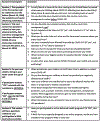"It's Gonna Be Okay"-A Qualitative Exploration of the COVID-19 Pandemic's Effects on African American Participants During a Dietary Intervention Study
- PMID: 37437808
- PMCID: PMC10789910
- DOI: 10.1016/j.jand.2023.07.003
"It's Gonna Be Okay"-A Qualitative Exploration of the COVID-19 Pandemic's Effects on African American Participants During a Dietary Intervention Study
Abstract
Background: African American adults are at increased risk for chronic diseases. Limited research exists regarding how the COVID-19 pandemic affected African American adults in behavioral interventions.
Objective: This study assessed how the early months of the COVID-19 pandemic, before vaccine availability and widespread testing, affected stress, nutrition, and exercise behaviors of African American adults participating in a dietary intervention study.
Design: This was a qualitative interview study conducted with participants from both diet groups as part of the ongoing Nutritious Eating with Soul (NEW Soul) study. NEW Soul is a 2-year, randomized dietary intervention study with participants randomized to follow a vegan (intervention) or low-fat omnivorous diet (control), with both diets focused on soul food.
Participants/setting: Participants (n = 20) came from 2 cohorts of the larger intervention study in South Carolina and were purposefully recruited based on high and low attendance at intervention sessions. Participants in the first cohort were near the end of the intervention, and participants in the second cohort were near the mid-point. The interviews were conducted from June to July 2020.
Main outcome measures: Outcomes included participants' experiences related to stress, nutrition, and exercise behaviors during the early months of the COVID-19 pandemic.
Analysis: Interviews were recorded and transcribed verbatim. Interview transcripts were coded by two coders using NVivo software. Interviews were coded through content analysis using a constant comparative method.
Results: Participants discussed the following 3 themes in relation to health behaviors: increased stress, change in routines, and advice to follow health goals.
Conclusions: Findings provide perspectives for designing interventions for African American adults establishing new routines to overcome setbacks and changes in routines created by the COVID-19 pandemic.
Trial registration: ClinicalTrials.gov NCT03354377.
Keywords: African Americans; Exercise; Health disparities; Nutrition; Stress.
Copyright © 2023 Academy of Nutrition and Dietetics. Published by Elsevier Inc. All rights reserved.
Figures


References
-
- Centers for Disease Control and Prevention. New Adult Obesity Maps. Centers for Disease Control and Prevention. Published January 7, 2020. Accessed March 16, 2020. https://www.cdc.gov/obesity/data/prevalence-maps.html
-
- Okpara N, Chauvenet C, Grich K, Turner-McGrievy G. “Food Doesn’t Have Power Over Me Anymore!” Self-Efficacy as a Driver for Dietary Adherence Among African American Adults Participating in Plant-Based and Meat-Reduced Dietary Interventions: A Qualitative Study. J Acad Nutr Diet. 2022;122(4):811–824. doi:10.1016/j.jand.2021.10.023 - DOI - PMC - PubMed
Publication types
MeSH terms
Associated data
Grants and funding
LinkOut - more resources
Full Text Sources
Medical

